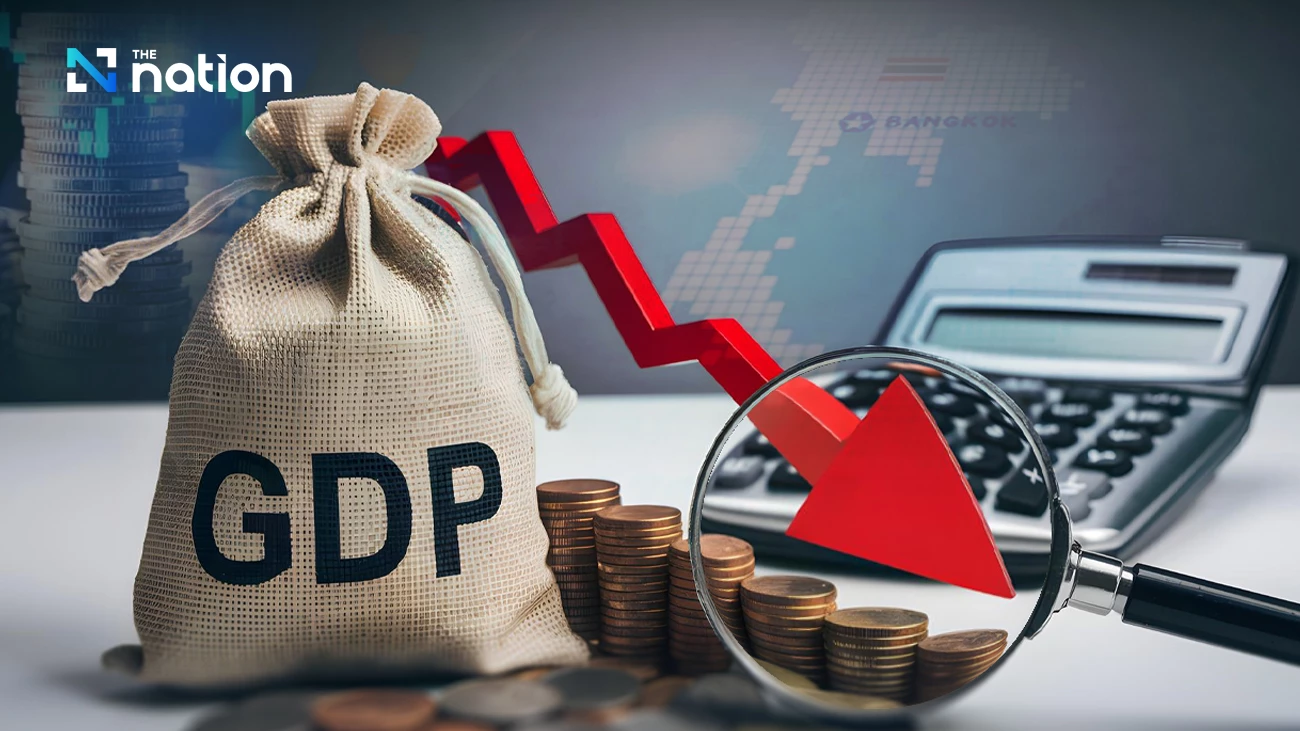The outlook remains highly sensitive to political developments and external shocks. While the base-case scenario is still within reach, Thanawat stressed that prolonged political instability or a failure to resolve trade tensions could cause Thailand’s economy to stall further.
Thanawat also assessed the potential economic impact of the Thai-Cambodian border conflict. If the situation de-escalates within one month, Thai exports could decline by 11.66 billion baht, reducing GDP by 0.06%. However, if tensions escalate and border checkpoints remain closed through the end of 2025, the loss in export revenue could reach 69.95 billion baht, with GDP shrinking by 0.38%.
Regarding the Prime Minister’s leaked audio clip, the UTCC has outlined three possible political scenarios and their respective economic impacts:
1. PM remains in office throughout the year, enabling continuous budget disbursement and implementation of the 157-billion-baht stimulus plan – GDP impact: -0.06%
2. New PM from the same coalition bloc is appointed, causing a 2–3 month delay in the 2026 budget – GDP impact: -0.20%
3. PM dissolves the House, delaying stimulus efforts for 3–6 months and restarting the 2026 budget process – GDP impact: -0.66%
The Iran-Israel conflict was also assessed under three possible outcomes:
1. Quick resolution – GDP impact: -0.07%
2. Prolonged conflict – GDP impact: -0.59%
3. Escalation into full-scale regional war, including Iran closing the Strait of Hormuz – GDP impact: -1.07%
In the case of US retaliatory tariffs, UTCC projects the following impacts:
1. 10% tariff – export losses of 74.05 billion baht, GDP impact: -0.40%
2. 15–20% tariff – export losses of 131.81 billion baht, GDP impact: -0.71%
3. 25–30% tariff – export losses of 201.86 billion baht, GDP impact: -1.09%
Wichian Kaeosombat, CEBF Assistant Director, said the second half of 2025 remains highly uncertain, with several key risk factors:
US trade policy – uncertainty over tariff rates Thailand can negotiate.
Iran-Israel conflict – with potential effects on global oil prices, inflation, and monetary policy.
Thai-Cambodian border tensions – affecting checkpoint operating hours and import restrictions.
Effectiveness of the 157-billion-baht stimulus package – dependent on disbursement progress.
Stability of PM Paetongtarn’s government – following the leaked conversation with Hun Sen.
Based on these variables, UTCC maintains its base-case GDP growth forecast of 1.7% for 2025. Other macroeconomic projections include:
Exports: +2.5%
Imports: +2.5%
Headline inflation: 0.5%
Public sector investment: +6%
Private sector investment: -1.2%
Government consumption: +1.3%
Private consumption: +2.4%
International tourist arrivals: 36 million
Tourism revenue: 1.69 trillion baht
Household debt: 87.4% of GDP
